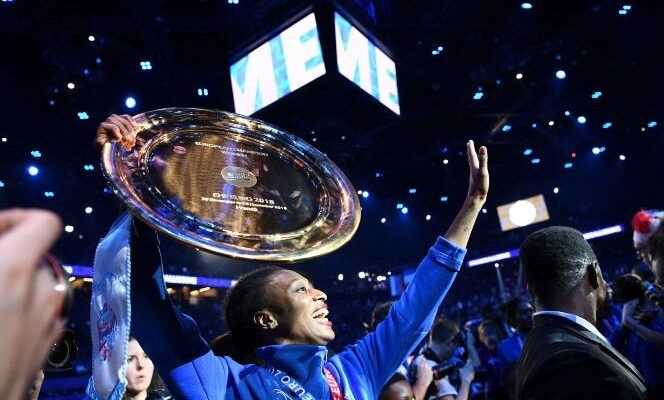“When I announced that I was pregnant, I had a lump in my stomach because I hadn’t told anyone. (…) I didn’t know if I was going to be able to continue training or even if I was going to be able to come back. “ These fears, expressed by Cléopatre Darleux, the goalkeeper of Brest Handball and the France team, will soon no longer interfere in the minds of future mothers playing in the clubs of the women’s division 1 of handball.
On March 15, a collective agreement was ratified for its elite players, a first in professional women’s sport in France. The text, initialed by the Union of Professional Women’s Handball Clubs (UCPHF), the Association of Professional Handball Players (AJPH) and the grouping of coaches and handball training professionals (7Master), secures the status of players, who will have social protection more suited to their profession than the very general national sports collective agreement.
More than twenty years after the professionalization of women’s practice, handball particularly wants to tender, with this agreement which will come into force on 1er July, towards a normalization of the maternity of the players: while they generally leave the parquet floor at the end of the second month of pregnancy, they will be able to benefit from a maintenance of the salary by the clubs for one year (against three months for the collective agreement for sport), up to twice the social security ceiling, or approximately 6,900 euros gross per month.
“Proud” that the handball players are put “In optimal conditions to become mothers”, the captain of the France team, Siraba Dembélé-Pavlovic, mother of twins since November 2019, hopes that this “Will serve as an example” and will encourage other disciplines to follow suit. “The agreement at least has the advantage of showing that it is possible”, supports Béatrice Barbusse, Deputy Vice-President of the French Handball Federation (FFHB).
A sharing not always easy between federations and clubs
To be successful, such an agreement must, however, “Be accompanied and pushed by the organizer of the competition, often the federation”, notes Camille Delzant, Secretary General of the National Federation of Sports Associations and Unions (FNASS). In women’s sports, professional leagues are generally placed under the authority of their federation. However, everything is not always simple between what must be managed by the federal authorities and what can come under social dialogue within the clubs.
You have 66.33% of this article to read. The rest is for subscribers only.
